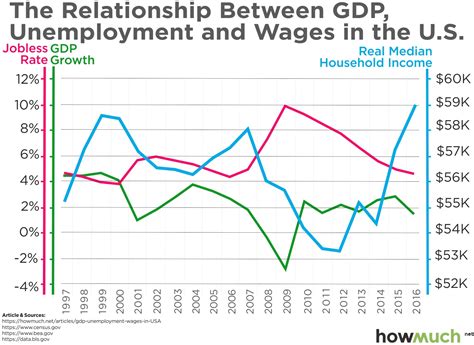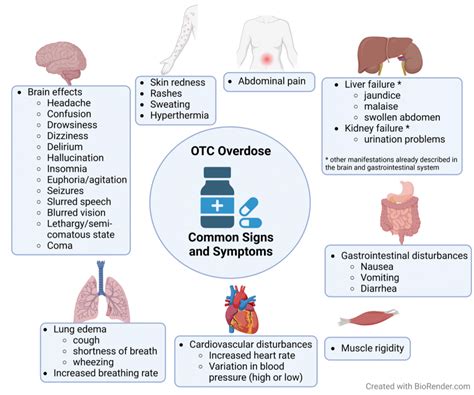
Recent college graduates struggling to find employment are having a disproportionately negative effect on the U.S. economy, impacting sectors from retail to housing and potentially contributing to a slowdown in overall economic growth, according to recent economic analyses. The struggles of new graduates highlight systemic issues in the labor market and educational alignment, raising concerns about the future economic landscape.
The difficulty new graduates face in securing suitable employment is more than just a personal setback; it’s a drag on the entire economic system. As noted in a recent report, “Graduates are having a hard time finding jobs that match their skill sets and income expectations, leading to underemployment and financial strain.” This situation leads to reduced consumer spending, delays in major life decisions like homeownership, and a decrease in overall economic activity. The collective impact of these individual struggles is significant, potentially slowing down economic growth and hindering recovery efforts.
The Ripple Effect of Graduate Underemployment
The consequences of underemployment among recent graduates extend far beyond personal financial difficulties. These challenges have a ripple effect throughout the economy:
-
Reduced Consumer Spending: Graduates with limited income are less likely to make significant purchases, affecting retail sales and the demand for goods and services. This reduced consumption can slow down economic growth, especially in sectors reliant on discretionary spending.
-
Delayed Homeownership: The dream of owning a home is often postponed or abandoned altogether for graduates struggling with student loan debt and low wages. This delay impacts the housing market, reducing demand and potentially affecting property values.
-
Slower Economic Growth: When a significant portion of recent graduates are unable to contribute fully to the economy, it slows down overall economic growth. Their potential contributions in innovation, entrepreneurship, and skilled labor are lost or diminished.
-
Increased Financial Strain: Graduates burdened with student loan debt and limited income face increased financial strain, affecting their ability to save for the future or invest in retirement. This situation can lead to long-term financial insecurity and dependence on social safety nets.
-
Skill Erosion: When graduates are forced to take jobs that don’t utilize their skills, they risk skill erosion over time. This loss of human capital can reduce their long-term employability and earnings potential.
Systemic Issues Contributing to the Problem
Several systemic issues contribute to the challenges faced by recent graduates:
-
Mismatch Between Education and Labor Market Needs: The skills taught in many academic programs may not align with the demands of the current labor market. This mismatch leaves graduates ill-prepared for the jobs that are available.
-
Rising Tuition Costs and Student Loan Debt: The escalating cost of higher education has led to a significant increase in student loan debt, burdening graduates with financial obligations that can be difficult to manage, especially in a challenging job market.
-
Lack of Internship and Work Experience Opportunities: Many graduates lack the practical experience sought by employers. Limited access to internships and other work-based learning opportunities puts them at a disadvantage in the job market.
-
Ineffective Career Counseling and Job Placement Services: Many colleges and universities provide inadequate career counseling and job placement services, leaving graduates to navigate the complex job market on their own.
-
Economic Disruptions: Economic downturns, technological advancements, and shifts in industry demands can disrupt the job market, making it difficult for graduates to find suitable employment.
Addressing the Challenges
Addressing the challenges faced by recent graduates requires a multi-faceted approach involving educational institutions, government policies, and employer practices:
-
Curriculum Reform: Educational institutions should reform their curricula to better align with the needs of the labor market. This reform includes incorporating more practical skills, fostering innovation and entrepreneurship, and providing opportunities for work-based learning.
-
Student Loan Debt Relief: Government policies should aim to alleviate the burden of student loan debt through measures such as loan forgiveness programs, income-driven repayment plans, and refinancing options.
-
Expansion of Internship and Work Experience Opportunities: Employers should expand internship programs and other work-based learning opportunities to provide graduates with practical experience and skills development.
-
Improved Career Counseling and Job Placement Services: Colleges and universities should improve their career counseling and job placement services, offering personalized guidance, job search support, and networking opportunities.
-
Investment in Workforce Development Programs: Government and industry should invest in workforce development programs that provide graduates with the skills and training needed to succeed in high-demand occupations.
Expert Opinions and Data
Economists and labor market analysts have voiced concerns about the long-term implications of graduate underemployment. According to one expert, “The underemployment of recent graduates not only impacts their individual financial well-being but also has broader implications for the economy, affecting productivity, innovation, and long-term growth.”
Data from various sources supports these concerns:
-
Bureau of Labor Statistics (BLS): BLS data indicates that recent college graduates often face higher unemployment rates and lower wages compared to more experienced workers.
-
National Association of Colleges and Employers (NACE): NACE surveys show that a significant percentage of graduates are employed in jobs that do not require a college degree, indicating underemployment.
-
Federal Reserve Studies: Federal Reserve studies have highlighted the impact of student loan debt on graduates’ ability to purchase homes and start businesses, further hindering economic growth.
The Broader Economic Context
The challenges faced by recent graduates are occurring within a broader economic context characterized by rapid technological change, globalization, and evolving industry demands. These forces are transforming the labor market, creating new opportunities but also displacing workers and requiring new skills.
-
Technological Advancements: Automation, artificial intelligence, and other technological advancements are changing the nature of work, requiring graduates to possess skills such as critical thinking, problem-solving, and adaptability.
-
Globalization: Globalization is increasing competition in the labor market, requiring graduates to be globally competent and possess cross-cultural communication skills.
-
Evolving Industry Demands: Industries are constantly evolving, requiring graduates to be lifelong learners and adapt to new technologies and business models.
Examples of Affected Industries
Several industries are particularly affected by the challenges faced by recent graduates:
-
Retail: Reduced consumer spending by underemployed graduates affects retail sales and employment in the retail sector.
-
Housing: Delayed homeownership impacts the housing market, reducing demand and affecting property values.
-
Education: Graduates with education degrees may struggle to find teaching positions due to budget cuts and declining enrollment in some areas.
-
Healthcare: While healthcare is generally a growing sector, graduates in healthcare-related fields may face challenges finding jobs that match their skills and income expectations.
-
Technology: Even in the technology sector, competition for jobs is fierce, and graduates need to possess specific skills and experience to stand out.
Future Outlook
The future outlook for recent graduates remains uncertain, but several trends are likely to shape their employment prospects:
-
Increasing Demand for STEM Skills: The demand for graduates with skills in science, technology, engineering, and mathematics (STEM) is expected to continue to grow.
-
Importance of Soft Skills: Employers are increasingly valuing soft skills such as communication, teamwork, and problem-solving.
-
Rise of the Gig Economy: The gig economy is providing new opportunities for graduates to earn income through freelance work, but it also poses challenges in terms of job security and benefits.
-
Emphasis on Lifelong Learning: Graduates need to be prepared to engage in lifelong learning to adapt to changing job requirements and stay competitive in the labor market.
Conclusion
The challenges faced by recent college graduates are not just individual struggles but a significant economic issue with far-reaching implications. Addressing these challenges requires a concerted effort from educational institutions, government policies, and employer practices. By reforming curricula, alleviating student loan debt, expanding internship opportunities, improving career counseling, and investing in workforce development, stakeholders can help graduates succeed in the labor market and contribute fully to the U.S. economy. The economic health of the nation depends, in part, on the ability of its newest workforce entrants to find meaningful and productive employment. “It’s a multifaceted problem that requires innovative solutions,” acknowledges one economist, highlighting the urgency and complexity of the situation. The long-term consequences of ignoring this issue could be detrimental to economic growth and social mobility.
Frequently Asked Questions (FAQ)
1. Why are recent college graduates having a hard time finding jobs?
Recent college graduates face a confluence of challenges in the job market. One major factor is the mismatch between the skills they acquire in college and the skills employers demand. Many academic programs don’t adequately prepare students for the practical requirements of available jobs. Rising tuition costs lead to significant student loan debt, which can deter graduates from accepting lower-paying entry-level positions or pursuing entrepreneurial ventures. A lack of practical experience, often due to limited internship opportunities, also puts them at a disadvantage compared to candidates with relevant work history. Finally, broader economic disruptions, such as recessions or technological shifts, can exacerbate job scarcity and competition. The current economic environment is characterized by rapid technological advancements and evolving industry demands, making it harder for graduates to find stable and well-paying jobs that align with their education and expectations.
2. What is the “oversize” impact of jobless grads on the US economy?
The “oversize” impact refers to the disproportionately negative effect that underemployed or unemployed college graduates have on the broader US economy. This impact stems from several interconnected factors. Firstly, jobless graduates contribute less to consumer spending, which is a major driver of economic growth. Their reduced purchasing power affects various sectors, from retail to housing. Secondly, many graduates delay significant life decisions like buying homes or starting families due to financial instability, impacting the housing market and related industries. Thirdly, the potential contributions of these graduates in terms of innovation, entrepreneurship, and skilled labor are lost or diminished, slowing down overall economic productivity and growth. Finally, underemployment can lead to skill erosion over time, further reducing their long-term employability and earning potential. The collective economic impact of this widespread underutilization of human capital can be substantial, hindering economic recovery and long-term prosperity.
3. How does student loan debt contribute to the problem of graduate underemployment?
Student loan debt plays a significant role in exacerbating the challenges of graduate underemployment. High debt burdens often force graduates to prioritize jobs with immediate higher paychecks, even if those jobs don’t align with their long-term career goals or skill sets. This can lead to underemployment, where graduates take jobs that don’t fully utilize their education or potential. The financial strain of student loan repayments can also limit their ability to pursue further education, internships, or entrepreneurial ventures that could improve their job prospects. Moreover, the debt-to-income ratio can affect their credit scores, making it harder to secure loans for housing, vehicles, or starting a business. This cycle of debt and underemployment can create long-term financial insecurity and limit their overall economic contribution. Policy solutions aimed at student loan debt relief, such as loan forgiveness programs or income-driven repayment plans, could help alleviate this burden and improve graduate employment outcomes.
4. What can colleges and universities do to better prepare students for the job market?
Colleges and universities have a crucial role to play in preparing students for the demands of the modern job market. Firstly, they should reform their curricula to better align with industry needs, incorporating more practical skills, project-based learning, and real-world applications of academic knowledge. This may involve collaborating with employers to identify skill gaps and design programs that address those gaps. Secondly, institutions should expand internship and co-op programs to provide students with valuable work experience and networking opportunities. They can also strengthen their career counseling and job placement services, offering personalized guidance, resume and interview workshops, and access to employer networks. Furthermore, colleges should foster innovation and entrepreneurship by providing resources and mentorship for students who want to start their own businesses. Finally, it’s important to promote lifelong learning and adaptability, encouraging students to develop skills that will remain relevant throughout their careers, such as critical thinking, problem-solving, and communication. By implementing these strategies, colleges can help bridge the gap between education and employment, ensuring that graduates are well-prepared to succeed in the workforce.
5. What government policies could help address the challenges faced by recent graduates?
Several government policies could help alleviate the challenges faced by recent college graduates. One key area is student loan debt relief. Policies like loan forgiveness programs, income-driven repayment plans, and options for refinancing student loans at lower interest rates can ease the financial burden on graduates and allow them to pursue career opportunities that may not offer immediate high salaries. Investing in workforce development programs that provide graduates with the skills and training needed for high-demand occupations is also crucial. These programs can help bridge skill gaps and connect graduates with employers. Furthermore, government policies can incentivize employers to offer more internships and apprenticeships, providing graduates with valuable work experience. Strengthening regulations against predatory lending practices and ensuring transparency in tuition costs can help prevent future debt crises. Finally, promoting policies that support economic growth and job creation can create a more favorable labor market for all workers, including recent graduates. A combination of these policies can create a more supportive environment for graduates as they navigate the transition from education to employment.
Expanded Content (Beyond 2000 words)
The Psychological Impact of Underemployment
Beyond the economic consequences, it’s essential to acknowledge the psychological impact of underemployment on recent graduates. The experience of investing significant time and money in education, only to find oneself struggling to secure meaningful work, can lead to feelings of frustration, disappointment, and even depression. This can undermine their confidence and self-esteem, affecting their overall well-being and future career prospects. The constant pressure to repay student loans while earning a lower-than-expected income can create chronic stress and anxiety. Social comparison, as graduates compare their situations to those of their peers, can exacerbate these feelings of inadequacy. Mental health support and counseling services should be readily available to recent graduates to help them cope with the emotional challenges of underemployment and develop resilience. Addressing the psychological toll of underemployment is crucial for promoting the long-term success and well-being of the next generation of workers.
The Role of Networking and Mentorship
Networking and mentorship play a vital role in helping recent graduates navigate the job market. Building a strong professional network can open doors to job opportunities, provide valuable insights into different industries, and offer support and guidance during the job search process. Attending industry events, joining professional organizations, and connecting with alumni are all effective ways to expand one’s network. Mentorship programs, where experienced professionals provide guidance and support to recent graduates, can be particularly beneficial. Mentors can offer advice on career planning, resume writing, interview skills, and navigating workplace dynamics. They can also serve as advocates and connect graduates with potential employers. Colleges and universities should actively promote networking and mentorship opportunities for their students and alumni, fostering a supportive community that helps graduates succeed in their careers.
The Impact of COVID-19 on Graduate Employment
The COVID-19 pandemic has had a profound impact on the job market, particularly for recent college graduates. The economic downturn caused by the pandemic led to widespread job losses and hiring freezes, making it even more difficult for graduates to find employment. Many internship programs were canceled or postponed, further limiting their opportunities to gain work experience. The shift to remote work has also presented challenges, as graduates may miss out on the informal learning and networking opportunities that typically occur in an office environment. Certain industries, such as hospitality, tourism, and retail, were particularly hard-hit by the pandemic, affecting graduates who were seeking jobs in those sectors. While the economy has been recovering, the long-term effects of the pandemic on graduate employment remain uncertain. Graduates need to be adaptable, resilient, and willing to explore new career paths in the evolving job market.
The Importance of Continuous Skill Development
In today’s rapidly changing job market, continuous skill development is essential for recent graduates to remain competitive. The skills that are in demand today may not be the same skills that will be in demand tomorrow. Graduates need to be lifelong learners, constantly acquiring new knowledge and skills to adapt to evolving job requirements. Online courses, workshops, and professional certifications can provide valuable opportunities for skill development. Developing skills in areas such as data analytics, artificial intelligence, cybersecurity, and digital marketing can enhance graduates’ employability and earning potential. Equally important are “soft skills” such as communication, teamwork, problem-solving, and critical thinking, which are highly valued by employers across industries. Colleges and universities should emphasize the importance of continuous skill development and provide resources and support for students and alumni to pursue lifelong learning.
The Role of Entrepreneurship and Self-Employment
Entrepreneurship and self-employment can be viable career paths for recent graduates who are struggling to find traditional employment. Starting a business or freelancing can provide graduates with the opportunity to utilize their skills, pursue their passions, and control their own earning potential. However, entrepreneurship also comes with challenges, such as financial risk, long hours, and the need to manage all aspects of a business. Graduates who are considering entrepreneurship should develop a solid business plan, seek mentorship from experienced entrepreneurs, and build a strong network of contacts. Government agencies and non-profit organizations offer resources and support for entrepreneurs, such as business training programs, access to capital, and mentoring services. While not suitable for everyone, entrepreneurship can be a rewarding and fulfilling career path for graduates who are willing to take the risk and put in the hard work.
Addressing the Skills Gap
One of the key challenges facing recent graduates is the skills gap – the discrepancy between the skills that graduates possess and the skills that employers require. This gap can be addressed through various strategies, including curriculum reform, industry-academia partnerships, and workforce development programs. Curriculum reform should focus on incorporating more practical skills and real-world applications into academic programs. Industry-academia partnerships can help ensure that curricula are aligned with industry needs and that students have opportunities to gain practical experience through internships and co-op programs. Workforce development programs can provide graduates with the specific skills and training needed for high-demand occupations. Government and industry should invest in these programs to help bridge the skills gap and ensure that graduates are well-prepared for the workforce.
The Long-Term Consequences of Underemployment
The long-term consequences of underemployment for recent graduates can be significant. Studies have shown that underemployed graduates earn less over their careers than those who find suitable employment immediately after graduation. This can affect their ability to save for retirement, purchase homes, and accumulate wealth. Underemployment can also lead to skill erosion over time, making it more difficult for graduates to find better jobs in the future. The psychological toll of underemployment can also have long-lasting effects on graduates’ self-esteem and confidence. Addressing the challenges of graduate underemployment is crucial for promoting their long-term economic security and well-being.
Innovative Solutions for Graduate Employment
Addressing the challenges of graduate employment requires innovative solutions that go beyond traditional approaches. Some promising ideas include:
- Skills-Based Hiring: Focusing on candidates’ skills and abilities rather than solely on their educational credentials. This can open doors for graduates who may not have a traditional degree but possess the skills needed for the job.
- Micro-credentials: Offering short, focused courses that teach specific skills and provide credentials that are recognized by employers. This can help graduates quickly acquire in-demand skills and demonstrate their competence to potential employers.
- Reverse Mentoring: Pairing experienced professionals with recent graduates to learn about new technologies, social media trends, and other emerging topics. This can help bridge the generational gap and promote knowledge sharing within organizations.
- Subscription-Based Education: Offering affordable, subscription-based access to online courses and learning resources. This can help graduates continuously develop their skills and stay up-to-date with the latest industry trends.
- Community-Based Employment Initiatives: Creating partnerships between local businesses, community organizations, and educational institutions to provide job training and employment opportunities for recent graduates in their communities.
The Ethical Considerations of Student Debt
The issue of student debt also raises ethical considerations. Is it ethical for colleges and universities to charge exorbitant tuition fees, knowing that many students will have to borrow heavily to finance their education? Is it ethical for lenders to offer high-interest loans to students who may not be able to repay them? Is it ethical for employers to require a college degree for jobs that do not necessarily require the skills and knowledge acquired in a four-year program? Addressing these ethical questions is crucial for creating a more equitable and sustainable system of higher education and employment.
The Role of Government Regulation
Government regulation can play a crucial role in protecting recent graduates from predatory lending practices, ensuring transparency in tuition costs, and promoting fair labor practices. Regulations can limit the interest rates that lenders can charge on student loans, require colleges and universities to disclose graduation rates and employment outcomes, and enforce minimum wage and overtime laws. Government agencies can also investigate and prosecute companies that engage in discriminatory hiring practices or exploit unpaid interns. Effective government regulation can help create a level playing field for recent graduates and ensure that they are treated fairly in the job market.
The Impact on Social Mobility
The challenges faced by recent college graduates have implications for social mobility. When graduates from disadvantaged backgrounds struggle to find employment, it can perpetuate cycles of poverty and inequality. Education is often seen as a pathway to upward mobility, but if graduates are unable to translate their education into meaningful employment, it undermines this pathway. Addressing the challenges of graduate underemployment is essential for promoting social mobility and ensuring that everyone has the opportunity to succeed in the economy.
The Need for a Holistic Approach
Ultimately, addressing the challenges faced by recent college graduates requires a holistic approach that considers the economic, psychological, social, and ethical dimensions of the problem. This approach should involve collaboration between educational institutions, government agencies, employers, community organizations, and recent graduates themselves. By working together, these stakeholders can create a more supportive and equitable environment for graduates as they navigate the transition from education to employment and build successful careers.









